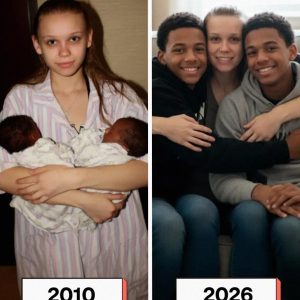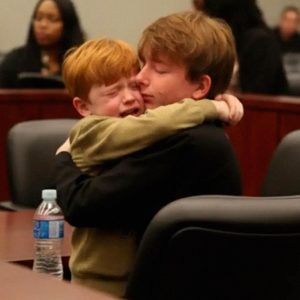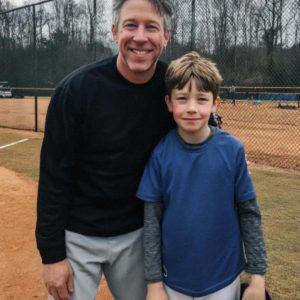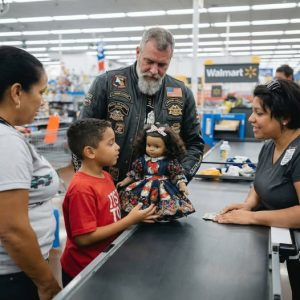When people talk about second chances in love, they often paint them as blissful and uncomplicated. They rarely mention the sharp edges, the unexpected conflicts, or the compromises that test you more than the first relationship ever did. I thought I had prepared myself for all of it. After my divorce four years ago, I swore I would never let someone into my life unless I was sure they could accept every part of it, especially my dog, Max.
Max is not just a pet. He is my anchor on nights when the loneliness feels unbearable, when the weight of pain presses down on me like a force I cannot shake off. Max is a rescue dog, a sturdy German Shepherd with soulful brown eyes and a loyalty that cannot be manufactured. He often curls up close beside me when the silence becomes too heavy, gently touches my hand when I cry, and reminds me every day that love can be steadfast, simple, and free of judgment.
So when I met Richard at a friend’s dinner party, one of the first things I mentioned was Max. I remember the way Richard smiled, raising his glass of wine and saying, “Any man who doesn’t like dogs probably isn’t worth much.” That response made me laugh, and I took it as a good omen.
Our relationship moved steadily. We enjoyed cooking together, planning trips we never had time to take, and sitting on the porch with glasses of iced tea as the summer slipped into fall. Richard was gentle, considerate, and most importantly, he seemed to accept Max without hesitation. Though he never bonded with him the way I did, he didn’t complain when Max shed on the couch or followed us from room to room.
The only complication was his daughter, Lucy.
Lucy was 8. She spent most of her time at her mother’s house, but she came to stay with us every other weekend. I wanted so badly for her to feel comfortable with me. I tried to bridge the gap with small gestures, buying her favorite snacks, asking about her school projects, and showing genuine interest when she talked about the books she liked to read. She was polite but distant, her words clipped, her eyes rarely meeting mine for long.
Still, I thought we were making progress, until one Saturday morning changed everything.
It was late March, a gray morning that carried the faint promise of spring. I was in the kitchen brewing coffee when I heard Lucy scream from the living room. I dropped the spoon in my hand and rushed out, heart pounding.
She was standing on the arm of the couch, clutching a blanket to her chest, her face pale. Max was lying on the rug a few feet away, tail thumping lazily, looking utterly bewildered.
“He tried to bite me!” she cried, pointing a trembling finger at him.
“What?” I blinked, crouching beside her. “Sweetheart, are you sure? Max has never—”
“He growled at me and snapped when I tried to pet him!” she interrupted, tears pooling in her eyes. “I don’t feel safe here if he’s around.”
Richard appeared then, drawn by the commotion. His expression shifted instantly into concern as he wrapped his arm around his daughter. “What happened, Lucy?”
She repeated her accusation, adding details that made my stomach twist—how Max bared his teeth, how she thought he was going to attack. I looked at my dog, still wagging his tail, confusion written all over his furry face.
“Max has never shown aggression,” I said softly, almost to myself. “He’s the gentlest soul. I don’t understand.”
But Lucy was adamant. And Richard, though he didn’t say it outright, believed her. I could see it in the way he tightened his hold on her shoulders, in the wary glance he cast at Max.
That night, after Lucy went to bed, Richard and I sat in the kitchen with the weight of the argument pressing down on us.
“She’s frightened,” he said, rubbing his temples. “I can’t dismiss that.”
“I’m not dismissing it either,” I replied, my voice trembling. “But I know Max. He would never hurt her. Maybe she startled him? Maybe she misread something?”
Richard sighed heavily. “Anne, she’s 8. If she says she felt threatened, we need to respect that. Maybe… maybe Max shouldn’t be here when Lucy visits.”
The words hit me like a slap. “You’re asking me to lock him away in another room? That’s his home too.”
“I’m asking you to consider her safety.” His voice was quiet but firm.
I couldn’t sleep that night. Max lay curled at my feet, his soft breathing a comfort and a torment all at once. The thought of rehoming him or giving up the one constant source of love in my life felt unbearable. But so did the thought of losing Richard.
Over the next few weeks, the tension grew. Every time Lucy visited, she refused to enter a room if Max was there. She’d flinch when his tail brushed against her leg, her face contorting in fear that seemed too intense to be fabricated. I found myself shuffling Max between rooms, whispering apologies to him, my heart breaking.
One afternoon, I sat on the porch steps with Max beside me, the spring air fragrant with blooming lilacs. I buried my fingers in his fur and whispered, “What am I supposed to do, buddy? How can I choose?”
The situation reached a boiling point one Friday evening when Richard and I sat down for dinner. Lucy had already retreated to her room, claiming she didn’t want to eat near Max, who was lying quietly in the corner.
“She says she doesn’t want to come here anymore if the dog stays,” Richard said suddenly, setting down his fork. “I can’t force her to be in a place where she feels unsafe.”
I stared at him, my appetite gone. “So you’re saying it’s him or her.”
He didn’t answer right away, but his silence spoke louder than words.
I wanted to scream, to cry, to demand how he could ask me to abandon a creature who had never let me down. But instead, I nodded mutely, excused myself, and went upstairs. Max followed, as he always did, and I clung to him through the night as though someone might take him from me by morning.
The next day, I called a trainer, hoping for a miracle. Maybe, if Max could be evaluated by a professional, Richard would see reason. The trainer, a woman named Jolene, came to the house the following week. She spent over an hour observing Max, testing his reactions, coaxing him into different scenarios. Her verdict was clear.
“This is one of the calmest, most even-tempered dogs I’ve ever met,” she said. “He shows no signs of aggression. If anything, he’s submissive. Whatever happened, I don’t believe it was Max being dangerous.”
Relief washed over me, but when I told Richard, he only shook his head. “That doesn’t change how Lucy feels. Her perception matters.”
I felt like I was trapped in a nightmare where the truth didn’t matter.
But the truth had a way of clawing its way out.
It was two weekends later, while I was folding laundry upstairs, that I overheard something that froze me in place. Lucy was in the living room with a friend she had invited over. The friend’s voice carried up the stairs, light and teasing.
“I still don’t get why you pretend to be scared of that dog. He’s so sweet.”
“Because,” Lucy whispered, her tone sharp with adolescent cunning, “if I act scared, Dad will make Anne get rid of him. Then maybe she’ll leave too. I don’t want her here. I just want it to be me and Dad again.”
The laundry slipped from my hands. My heart hammered in my chest, not from anger at Max being falsely accused, but from the raw cruelty of what I’d just heard.
When Richard came home later that evening, I told him everything. His face drained of color as I repeated Lucy’s words, every syllable like a hammer to the fragile trust between us.
At first, he wanted to dismiss it—kids say things they don’t mean, maybe I misheard. But when I confronted Lucy directly, she crumbled under the weight of her own lie. She admitted it through sobs, confessing she wanted me out of their lives, that she thought if Max was gone, I’d follow.
Richard looked devastated. He pulled her into his arms, trying to soothe her, but the damage was done.
That night, when we were finally alone, I said quietly, “I was willing to give up my dog, Richard. Do you understand that? I was ready to break my own heart because I thought it was the only way forward. And all along, it was a manipulation.”
His eyes filled with tears. “I’m so sorry. I didn’t see it. I thought she was genuinely scared.”
“I don’t blame her for wanting more of you,” I admitted, my voice shaking. “She’s a child. But I can’t stay in a situation where my loyalty is constantly questioned, where my love for Max is seen as negotiable.”
The silence between us stretched, thick and suffocating.
In the end, Richard and I parted ways. It wasn’t an easy decision—I loved him. But love without trust, without respect for the things that make you whole, is a fragile thing.
Max and I moved forward together. He remained by my side, steady as always, his presence a reminder that loyalty doesn’t falter when life gets complicated. And though the loss of that relationship stung, I found peace in knowing I had chosen rightly.
Because in the end, no one should be forced to choose between love and loyalty, between a partner and a faithful companion who has never done anything but love unconditionally.
And when I look into Max’s eyes, I know without a shadow of doubt: I chose the one who would never make me regret it.





